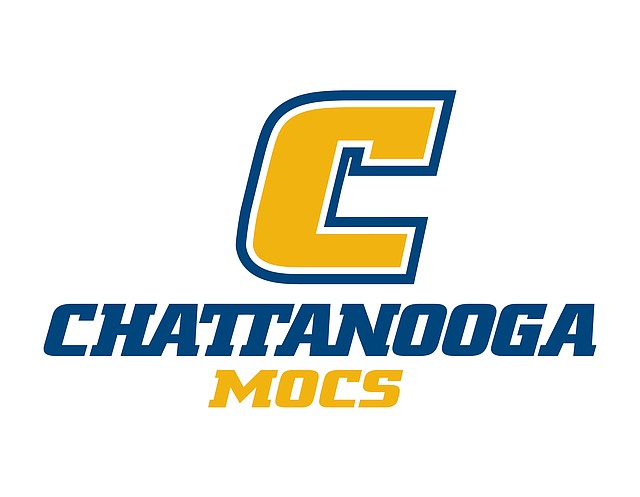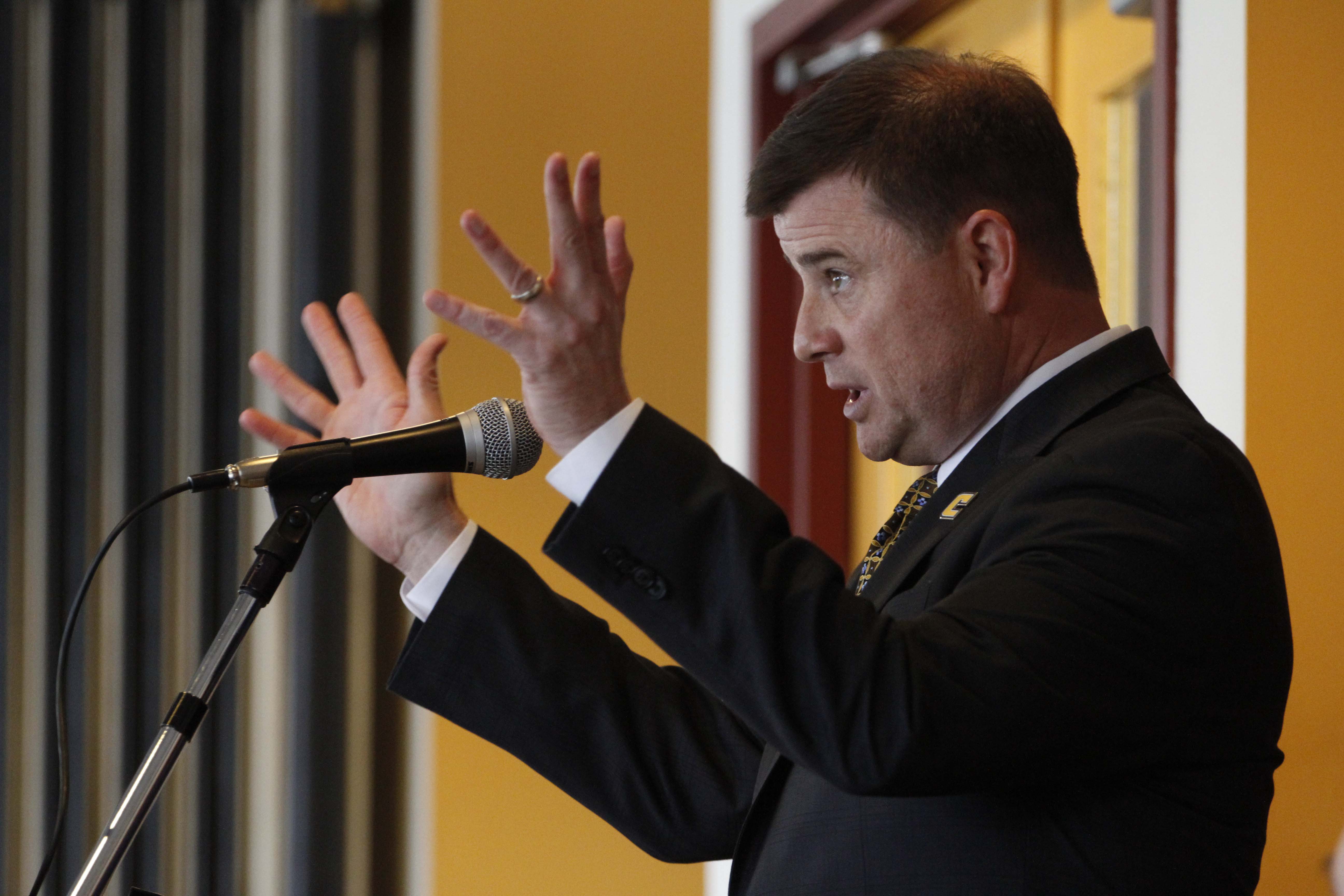UTC's Blackburn clarifies ruling confusion
Friday, March 28, 2014
University of Tennessee at Chattanooga athletic director David Blackburn has been following developments in the Northwestern University football unionization issue. While the immediate impact on UTC would be minor, the implications of the ruling this week allowing Northwestern football players to unionize could send shock waves through college athletics. Blackburn discussed the situation Thursday in an interview with staff writers Jay Greeson and David Paschall on their "Press Row" radio show on 105.1 FM.
Q: The news out of Chicago to allow Northwestern football players to vote to unionize and deeming them employees opens up a can of worms. ... When news broke about that, what was your first reaction, and how might something like this snowball and affect UTC?
A: "I've been on the phone with the NLRB up there in that district. Jim Phillips, who is the athletics director [at Northwestern], is a friend of mine. ... I think it's extremely important to know as much as we can about it. I was a little shocked that this happened, but I think people are confused on a couple of issues.
"There's a movement to pay student-athletes a little bit more money and that they deserve that. And I think there may be some validity to that. But this particular issue is more about a categorization of where they fit. Are they student-athletes that get grant-in-aids or are they known as employees? I think people are confusing the issues. It's important to know that there are two different issues going on, and there are a lot of different issues that go into being an employee. ... It's clearly a hot topic, but it did surprise me that the ruling came down as quickly as it did."
Q: When athletes at Northwestern first floated this idea, there were athletes at Georgia and other schools who tweeted out their support of this movement. Have you ever had an athlete at UTC come to you saying they would support something like this?
A: "No, we haven't, to my knowledge, at least not to one of my staff members or to me. That may happen. ... As much exposure as this has gotten, you just don't know. But we have not had that happen at our place yet."
Q: Have you been touch with anyone at the NCAA, or have they reached out to you to update their member institutions?
A: "They've not reached out to us, and I don't think they've done a mass message yet. They've done a nice job in keeping us informed on this issue over the past couple of months, and I have talked to some people at the national office. But, no, they've not sent us any specific information on this in the past 24 hours. I think that they are, like many folks, trying to figure out what this means and how far-reaching it is now and how far-reaching it will be in the future.
"Right now it really only affects the Northwestern team in football. It's not wide open to private [schools] yet. At some point it's obviously where this may head, pending the appeal process."
Q: If it was to expand, it would have to be by individual sports, correct?
A: "If it expands, then it would go to the private sector institutions like Vanderbilt and Duke and whatnot. At that point all student-athletes would have the same affordability to accessing labor relations support if it were to go that far. It wouldn't stop at football, even though now that's where the ruling sits."
Q: While it is in football now, if it did expand to basketball, volleyball, etc., would all athletes be under one union or would it be split up by sport?
A: "They would all be under one union if it goes that far. All the student-athletes would go under one union treating one school the same way you'd treat one corporation. But currently it would be football only. But from what I've been told it would be pretty much institutional by athlete and wouldn't just stop at football. I don't know and don't want to pretend to know what's going to happen, but by all logical thinking that's how it would flow if the appeal is overturned and this thing moved forward past where it is today."
Q: I think we all agree that the NCAA is going to spend every dollar and leave no stone unturned in the appeals process, correct?
A: "Well, that's probably a fair assumption. I don't know that for a fact, but I would imagine that. Tied into this conversation on a separate matter is the fact that the NCAA is working very hard trying to figure out a way to compensate student-athletes and hear the concerns that are out there that many student-athletes have raised, so, yes, I think they will do that.
"Because once you categorize the athletes as employees, although it may seem positive at the moment, there are many issues that you have to look at institutionally and nationally as far as taxation, workman's compensation, the amount of apparel they can receive before it's taxable, travel, and there are several layers that must be examined. I think the NCAA would like to keep it as it is as a grant-in-aid but find a way to assist the student-athlete with some compensation."
Q: Do you have any idea how this would affect you at UTC? Is there any way to even know that?
A: "That's a great question. I don't, and I don't want to act like I do. I honestly think if it were to get to the public sector, which it may or may not, it certainly would reach down to all those institutions. Clearly, we are at a different level financially than one of the five power conferences.
"It could have ramifications as you look at paying for all of the things we have to pay for. ... In our school and our state right now, if we pay a student-athlete for a full scholarship with ancillaries in there, you're talking about $90,000 to $100,000. Not to mention that we cover them fully medically if it's an athletic-related injury. There are student-athlete opportunity funds, and may of the athletes are Pell Grant-eligible. Also, many of them receive the Hope scholarship, so we're putting more money in their pockets now that we've probably done ever. I think it's important that people know that."

